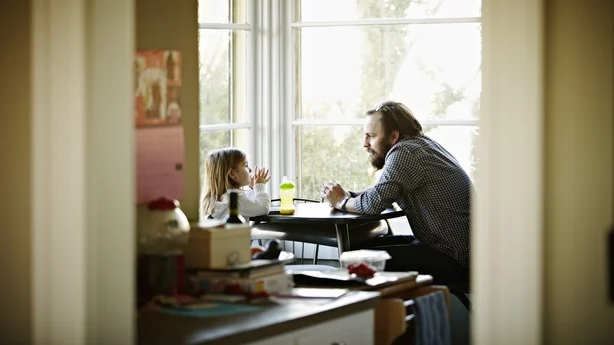Stay updated with the latest beauty tips, trends, and news from our salon experts. Our blog is your go-to source for all things beauty.
Divorcing parents have to explain what’s happening to their confused and/or upset youngsters – often when those parents are upset and confused themselves.
So what’s the best way of explaining what’s happening to affected children?
"Divorce is a big change for the whole family, and it’s natural for children to feel unsettled or unsure about what’s happening," says Alicia Eaton, a Harley Street psychotherapist who specialises in helping families with children’s emotional wellbeing.
"The key is to provide clear, age-appropriate explanations while offering them a sense of security, love, and reassurance."

And divorce and separation coach Celia Conrad, from divorce coaching platform Pivot, stresses that the impact of divorce on children can’t be overestimated, as everything a child is familiar with can change instantly.
"It can deeply affect their sense of security and cause anxiety and distress," she warns. "It’s always preferable to tell the children together if possible, and make it clear that whatever happens they are loved, no matter how old they are. It’s also important for the children to be told that the split isn’t their fault.
"Parents need to think about how, when and where children are told, and what they are told, and make sure this is done in an age-appropriate way."
Here’s how to navigate explaining divorce to children by age group…
Preschool (ages three to five)
Children this age live in the moment and may not grasp the full picture of divorce, so focus on what matters most to them like love and routines, suggests Eaton, author of First Aid for your Child’s Mind.
She says: "Use simple, clear language, such as ‘Mummy and daddy are going to live in different houses, but we both love you very much. That will never change.’"
Conrad points out that a two- or three-year-old may not be able to articulate or express their feelings like an older child, so it’s important to be aware of any change in behaviour and/or in sleep patterns.
"For this age range it will be more a case of reassuring the children, answering any questions they might ask about daddy or mummy not being there in very simple terms and making sure the children feel supported and loved," she says. "It depends on the individual child – there’s no one-size-fits-all approach."

2. Early primary years (ages six to eight)
Eaton says: "At this age, children begin to notice and understand emotions but may struggle to express their own feelings. They might also worry they’ve done something wrong. Be gentle but honest."
She suggests parents say something like ‘Mummy and daddy have decided we can’t live together any more, but we’re still your family, and we’ll always love you.’
Conrad says children in this age group need to be reassured about any changes like moving home, changing school and having to make new friends, but adds: "It’s important not to overwhelm them, but to tell them what they need to know when they need to know it."
3. Late primary to early teens (ages nine to 12)
Older children are more capable of understanding the situation but may feel deeply affected by the change, says Eaton. "They might fear what this means for their own lives and routines, so share a little more detail, always framed positively: ‘We’ve tried to make things work, but we believe this is the best way for all of us to be happier.’"
And Conrad adds that children of this age are much more aware and will pick up on what’s happening between their parents. "They’ll start to ask questions as they’re able to articulate and express their feelings and wants more, and need to understand what’s happening, otherwise this will impact them in a negative way."

4. Teenagers (ages 13-18)
Eaton says teenagers often seem emotionally resilient, but they’re still deeply affected by divorce. "They might worry about how the divorce impacts their future or view relationships in a more cynical light," she points out.
"Respect their growing maturity – you could say ‘We’ve made this decision because we believe it’s best for everyone’s happiness. We’re here to support you, and we’re still a family.’"
Conrad stresses that teenagers are very aware of discord, situations and atmospheres, and can feel guilty about parental conflict, especially if they believe they are the source.
"As children hit teenage years they’ll have a lot more questions and will be more vocal in their views, but this is such a period of transition so it’s important for parents to maintain stability and do their best to maintain a unified front.
"When telling them, it’s important to make it clear that both parents are there for them and alleviate any concerns about the future."